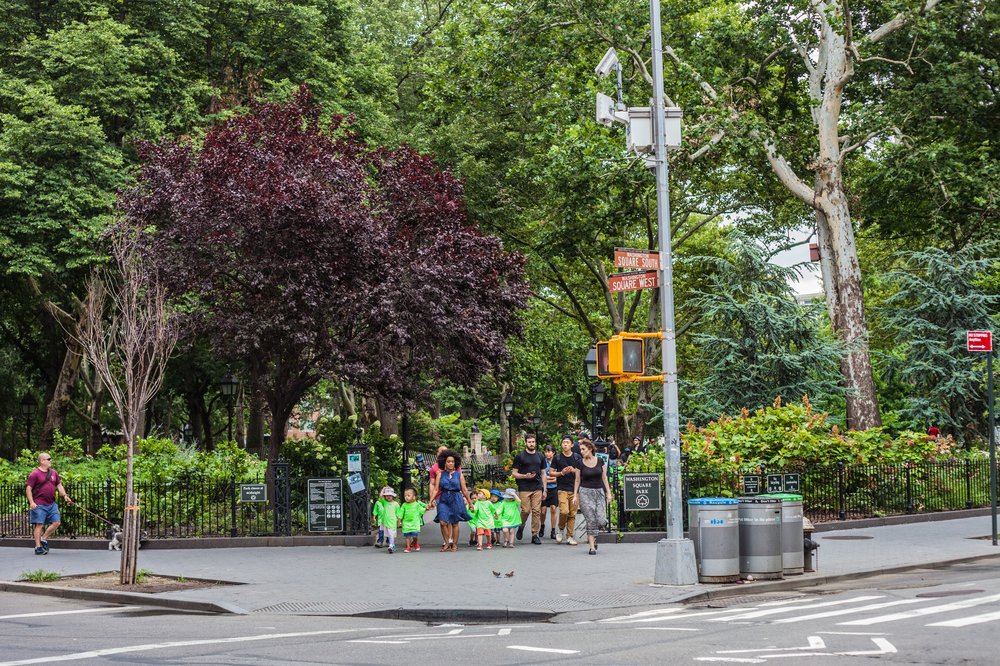200-year-old NYC youth charity to shut down after years of late contract payments
Feb. 21, 2023, 1:57 p.m.
Sheltering Arms, founded in 1823, serves around 17,000 New Yorkers a year, but will close down due to late contract payments and pandemic-related funding cuts.

A 200-year-old New York City nonprofit serving more than 17,000 kids and families is shutting down after years of funding cuts and millions of dollars in late contract payments, its CEO told Gothamist on Monday.
Sheltering Arms was founded in 1823 and operates youth homeless shelters, foster care, mental health treatment and housing programs in every borough except Staten Island.
CEO Elizabeth McCarthy called the decision to end services after two centuries “devastating” and said late contract payments and low enrollment in some programs doomed the organization. Sheltering Arms’ financial problems worsened during the pandemic, with a $2 million budget gap forcing it to cut its daycare programs last year, she added.
“If I were building a bridge for the city and they stopped paying me for 18 months I would stop building the bridge,” McCarthy said. “They’re mission-driven businesses, but they're still businesses."
Backlogged contract payments have long pained nonprofits and is among the issues Mayor Eric Adams pledged to tackle early in his tenure. Adams and City Comptroller Brad Lander joined forces last year to create a task force to “get nonprofits paid on time.”
“We pay our firefighters, teachers, and health care professionals on time — and other contracted essential workers should be no different,” Lander said in a statement Tuesday.
Michelle Jackson, executive director of the city’s Human Services Council, said city payment delays have dogged thousands of organizations like Sheltering Arms.
“This is a long-standing issue,” Jackson said. “The Adams administration inherited a system that was beyond repair.”
The mayor’s office did not respond to requests for comment for this story.
Lander said he and the Adams administration are “working hard to clear the backlog that causes organizations to struggle or shutter.”
Sheltering Arms declined to share specific budget numbers, but the group’s 2020 financial statement showed razor-thin reserves: The organization took in about $99.2 million that year — mostly from government contracts — and spent all but about $66,000.
The shutdown will take effect later this spring, an organization spokesperson said. The organization will turn its programs over to other nonprofits, including Rising Ground, which has pledged to offer jobs to existing Sheltering Arms staff.
Sheltering Arms also contracts with the Department of Youth and Community Development and the Administration for Children’s Services.
Mark Zustovich, a spokesperson for the DYCD, said the agency “immediately began mobilizing” other nonprofits and the state to reassign Sheltering Arms’ contracts.
The “residential and drop-in network will not lose capacity, and any young person who needs services will continue to have access to them,” he said.
Jeannine Smith, a spokesperson for the state's Office of Children and Family Services, said the agency is also working with the DYCD to “avoid lapses in services.”
Low enrollment in early childhood and other programs, which was spurred by the pandemic, meant less cash from the city to Sheltering Arms, said organization spokesperson Jennifer Burner Barden.
The Department of Education agreed to reimburse only 75% of the organization’s spending last year, leaving Sheltering Arms millions behind in cash that it needed to make rent, cover insurance and pay staff, she said. The DOE did not immediately respond to a request for comment.
A 2021 report by the city’s Human Services Recovery Task Force found that more than 1,800 nonprofits were in danger of closing, with revenues down an average of $9.1 million and late payments averaging around $8 million. On Friday, the New York Times reported on similar problems plaguing another youth homeless services provider, Girls Educational & Mentoring Services, or GEMS.
“All of my members get government funding and none of them get 100% of what they need,” Jackson said. “Is this a sustainable model? I think more and more organizations are grappling with that question.”
Jamie Powlovich, the head of the Coalition for Homeless Youth, said losing Sheltering Arms’ programs for homeless teens and young adults will be a big blow. The organization’s services have been a “national model,” she said.
Powlovich said she hoped the transition to Rising Ground would move quickly so there was no disruption in services for young people staying in their 44 shelter beds and 102 federally funded apartments. The city’s decision to cut contracts with the troubled youth shelter provider CORE Services removed nearly 100 beds from a strained shelter system, with some still not approved to reopen more than a year later.
The city has triggered additional uncertainty in the youth services network by ordering providers, including Sheltering Arms, to prohibit young people from sleeping in their drop-in centers overnight.
Former Sheltering Arms staff member Lyndon Hernandez, who co-chairs the city’s Youth Action Board, said he hoped the closure would mean stronger services for homeless young people and that Rising Ground would follow through with a plan to offer jobs to existing staffers.
“This hopefully means more opportunities for things [clients] didn’t have access to before,” Hernandez said.